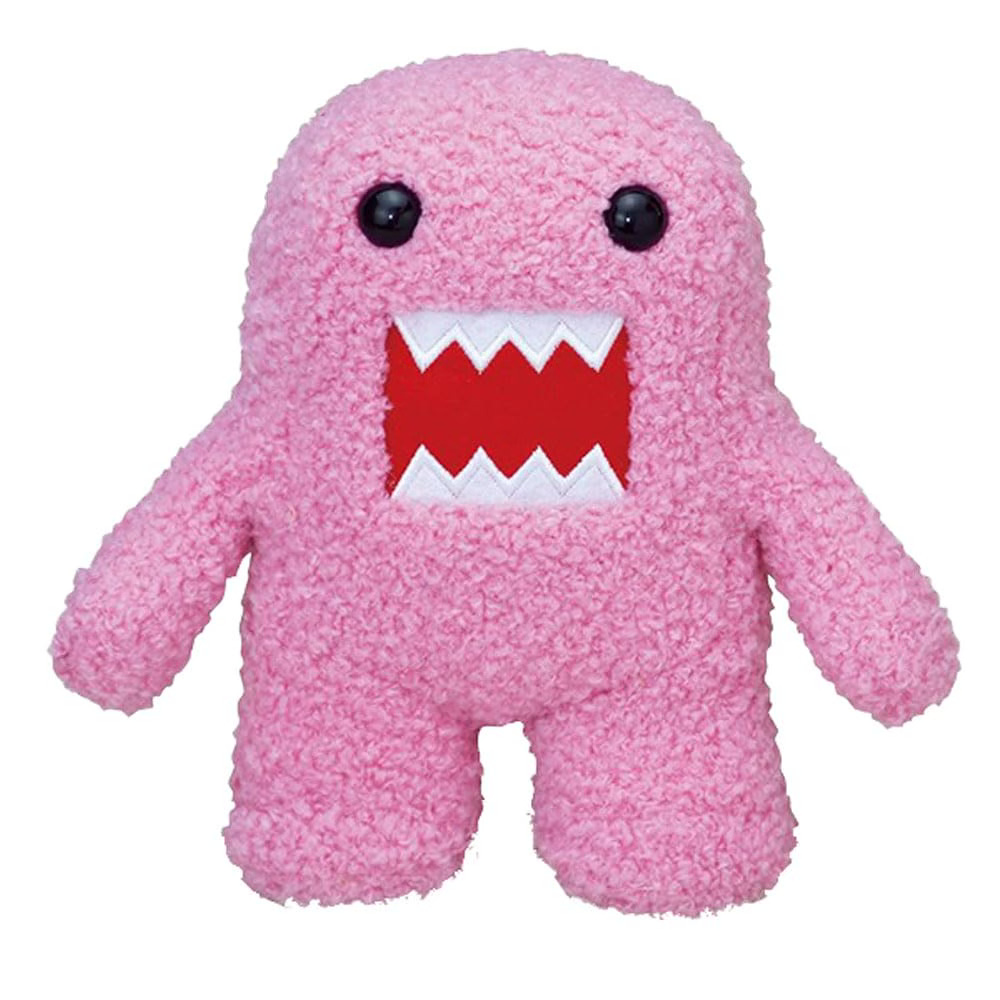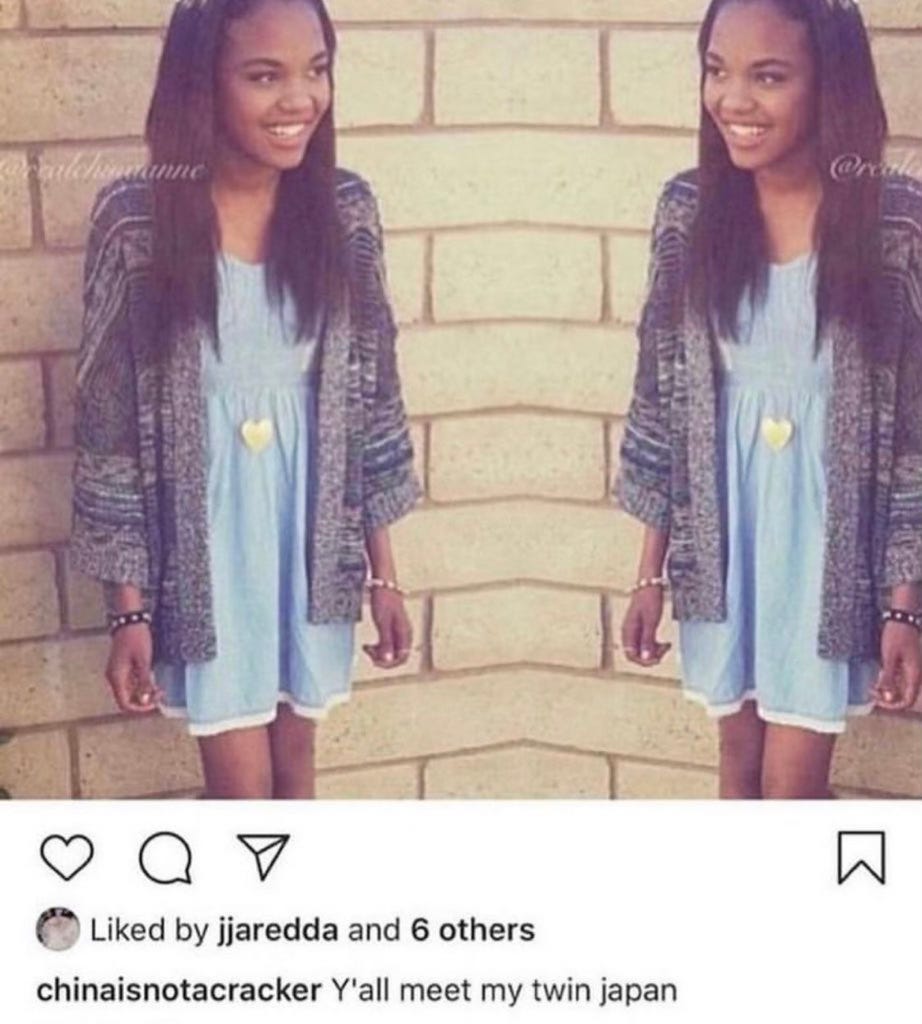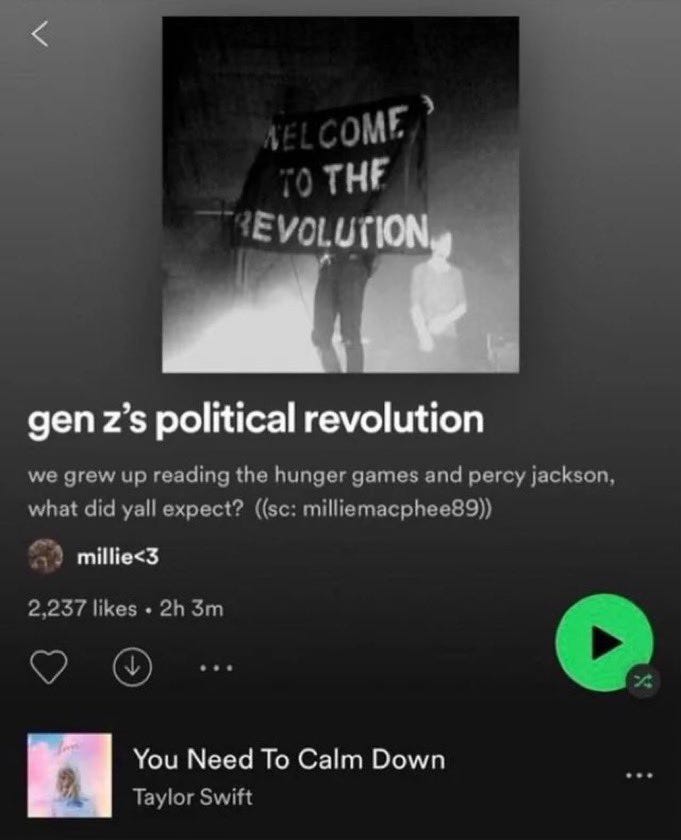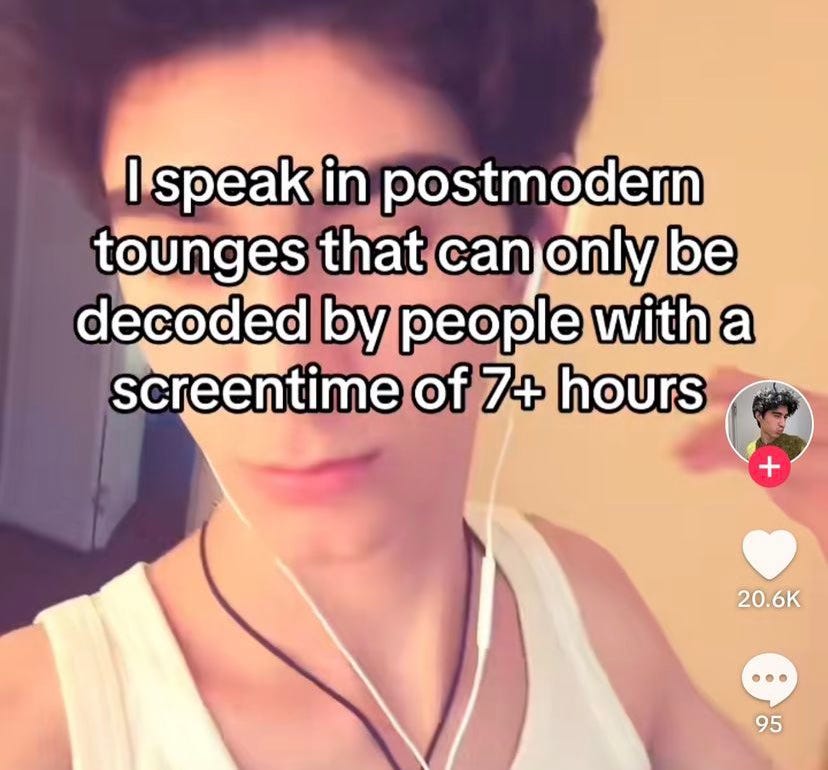I can still remember when I got Instagram for the first time. I was in the 5th grade, taking the bus home from my small catholic school. It was sort of rainy outside. A boy, more “popular” (there were 12 kids in my grade) than me (he had public school friends) asked me if I had Instagram.
The subtext here is that the next year I would be moving to the watering hole: public middle school. My school went until 8th grade, so it was sort of a point of contention to leave. And I was definitely feigning confidence. I was preaching how big and important and dare I say, worldly, I was. I don't need this place or Jesus. But, as you may suspect, I was terrified. I knew I would be entering the new social hierarchy at a considerable disadvantage.
So, you can imagine my horror when Mr. Popular Public School Friends Boy asked me if I had an account for an app which I had never even heard of. I played it cool, don’t worry. Instagram? Oh yea. I just got that the other day. I can’t remember my username right now, though. I wish I could check but I only have my iPod on me. I’ll let you know tomorrow though.
I can still remember trying to get the app store to load in the back of the bus. My iPod never had a data option, but sometimes there was a pathetic desperation… I always held out hope that the internet would just find me and my iPod. Call it Jesus, maybe.
I booked it off the bus and made my account. My username: hail_bail327. My first post: My huge pink Domo wearing a Domo snapback hat, which I had won on the Ocean City boardwalk. The caption: “DOMO wearing a DOMO hat XD”
The rest is history. I wish I had evidence of that Instagram post, but 7th grade Hailey did some damage control. It seems I missed the mark a bit in 5th grade, because my digital presence was not very Popular Girl. At first, I feared this app was not a place where I could fake my social status. Who would follow me and like my posts? Turns out, it was actually the perfect space to fake social status. But this was a later revelation, through a series of “LB” comments on all the Jenners/Kardashians posts.
The Old Regime
I viewed Instagram in the same vein as that Myspacian, archaic early Facebook realm. Of course, that was my frame of reference – you cannot imagine a reality which has not taken form yet. You shit posted, and then … it's not like your 35 year old cousin with a child was really still posting. In hindsight, the logical conclusion is that your 35 year old cousin was also new to this social media world.
I never envisioned it as something that followed me into capital A Adulthood. I never thought that the way I use social media would forever be the way I use social media, you know? Well, MySpace is long dead, so perhaps this fact informed my perception: you outgrow it, and then the platform is gone anyways! God willing, Facebook is on its way out, too.
Even before hail_bail327, I knew about Facebook. Facebook was where my cool older cousins who wore C cups got older boys and popular girls to give them appraisal. This, too, was what I would work towards as a 5th grader. That is cool. But as I grew up (never reaching C cup status, anyways), social media etiquette changed. It is important to note that even in the historiography of the internet, the mythic allure of a bygone era is as pertinent and pervasive as ever…
Back in those days, social media was explicitly a performance. Your username was your online persona and no one really made the mistake of conflating that with your offline persona. Early social media self presentation was more artificial, but perhaps more wholesome. Your offline persona was your Self. Online was a place to play pretend, and the sanctity of the offline Self was prioritized.
Maybe to adolescent Hailey’s surprise and dismay, the current age of social media does not define social status through followers and likes. Quite the contrary, actually. It is about the appearance of authenticity. This “authenticity”, is defined in juxtaposition to the images produced under the old regime (Facebook duckface C Cup girls). This was perhaps a well intentioned movement, with sinister side effects. Gen Z grew up as the lines were blurred between online and offline. We grew up in a world of images, noise, products, faces and aesthetics. As a result, we learned to prioritize aesthetics and images over the tangible artifacts of life.
I think I am situated in a unique position here: I matured as technology and social media did. I grew up in that short moment of time where people had iPods AND flip phones. I remember the computer room. I got my first iPhone in high school. I graduated high school in 2019. I started college in 2020, with the cohort of kids who didn’t graduate pre-pandemic. I had the once in a generation experience of an entire freshman year online. Was your freshman year bad? Haven't you always wanted to know what it was like to navigate an inherently awkward period of your life entirely on social media?
Much of Gen Z’s flailing attempt to take control over our lives has led to an idea about the reclamation of who we were as children. I think this is sweet but a bit naive. It’s possible that we may actually just be looking for ways to live life outside tech. Do we long for our “True Self”, which is somehow buried deep within us, or do we long for a world where some things are still analog, and the digital does not control our reality? Realistically (this is hard to admit), I think I have always been a consumer. I can't say I lived that gifted kid bookworm childhood. I didn't read more than I needed to. I didn't care for sports much– I played them, but not really my thing. I liked the arts but not enough to pursue them as my passion. I played outside, but I was not really the outdoorsy type. I loved to watch TV, to be honest. I loved to be on the internet, when that became a thing. I don’t have a core inner child self that can magically serve as an antidote to my current problems, as many people say they do. (And ask yourself, do you really want to put that kind of pressure on your young self, anyways?)
Mark Fisher coined the term Capitalist Realism which asserts that capitalism informs you before you even exist. It infiltrates your tastes, desires and passions before you even have them yourself. I guess I’ve always been a consumer. You probably have been too.
A Society of Spectacle
Guy Debord called the modern age a “Society of Spectacle.” He states that:
“The spectacle is not a collection of images, but a social relation among people, mediated by images. It is the heart of the unrealism of the real society. In all its specific forms, as information or propaganda, as advertisement or direct entertainment consumption, the spectacle is the present model of socially dominant life. [...] The basically tautological character of the spectacle flows from the simple fact that its means are simultaneously its ends. It is the sun which never sets over the empire of modern passivity. It covers the entire surface of the world and bathes endlessly in its own glory.”
Hopefully I’ve just fallen for the bait, but sometimes I worry that everyone knows how to be a person more than me. Half out of doubt and half out of humiliating desperation, I bring it back to this issue of social media with this question: Do we imagine ourselves doing this forever?
I've always thought I would outgrow it. But when? 5th grade Hailey certainly imagined having more of a grasp over life. Yet, I have no time— I have no control. I could certainly never be a parent with this level of phone addiction. Social media always had a half-life in my mind, so when is it over?
When I imagine life, I realize that I’m imagining a Baudrillardian concept of life. It's a produced image, a product. A product of who a human being is and what they do. But I have gotten this image from — can you guess where? This world of images. Even what it means to be a person is an aesthetic to me. Social media and spectacle has infiltrated (maybe even produced) the very fiber of my being, informing how I move through and think about the world. When I think Human Being, it is an image defined by what I think the aesthetic of a person is. Concept triumphs over Humanness.
Let me explain this more: In the fall, I went for a walk without my phone. Human Being does Walks in Park, right? Yet I felt literal physical anxiety when I realized that I was in a beautiful park and had no phone-- not because I would get lost or something, but really, because I could not watch myself watching myself as I perceive others watch me. It's an addiction, the gratification from the audience in my pocket– "the generalized other", which is actually just myself. As I continued my walk, I kept circling on the phrase "the tether" and realized how even outside, away from my phone, I felt this pull to it. It felt like I had a world to return to (of course, no notifications when I did finally check my phone). There is so much pressure from a world of noise and people and words and sound and pictures, which live in our pockets. I do not even get to enjoy a walk, because my mind is there, in that digital world of noise and images.
In her essay on TikTok and the spectacle of modern relationships, Maalvika argues that the performace of authenticty is not new per se, but it is “the scale, speed, and public nature” which has changed. I do not know how to negotiate my relationship to social media, as I am frankly unaware of what is left of my Self when I start to take away the invisible audience in my head. At times I feel more like a Concept than a Person.
I’ve always aspired to be a quiet type of person. It’s always being a type of person, isn't it? Am I just basing this off of archetypal perceptions of life? I am more attracted to the concept of a person. Still, I can’t resist posting, framing my life, making my voice heard. It makes me hate myself while simultaneously being obsessed with myself. The instant gratification, virtual self affirmation loop produces a profoundly deep sense of self disgust, which can only then be soothed by that cheap but oh-so-sweet dopamine from my screen. Myself on my screen. Myself as a concept on my screen.
I'm unsure of how to spend my free time or behave without talking it over with the audience in my head, and then doing it for them-- which has resulted in shame and self disgust, as if something Sacred has been tarnished by the performance of it. Perhaps I will have to grant myself peace in this digital age, and the performance will become a Ritual rather than Profane.... though I hope it does not. It really does feel like this digital self surveillance is Unholy.
Self in the Ontological Turn
While born out of a generation defining itself as the producers of the zeitgeist, our innocent obsession with “candid” shots has morphed into the loss of the ability to move seamlessly between online and offline. Though we wanted to bring “authenticity” to the world of artifice and images, we are part of a new epoch, a new regime. We are amidst an ontological turn, in which we are now hybrid beings.
In this mediated world which we inhabit and produce, social media has a growing drive to dominate as a valid social space. The push towards the pursuit of “authenticity” can be understood by Erving Goffmans’s theory of Self as a social actor. Again, this is not a new phenomena, but social media has moved us into the realm of the visual. Visual self presentation is all about being implicit – it’s grounded in the culture of consumption, in which the visual self is a cultural self. You can now broadcast that you are a thoughtful/funny/whimsical/rich person through your consumption habits and tastes. Taste defines Individual. In the visual realm, taste is all about aesthetics. Therefore, social media is a space for one to curate and show off a sort of possible self, whom we could be if given the right circumstances. Individual is a performer and Self is a character. Social media is a space for extracorporeal ideation.
**I would like to point out that Walter Benjamin argued that fascism is the aestheticization of political life. Given our ontological turn into the mediated, aestheticized visual realm, perhaps there is some connection between this fact and the current state of American politics.
To Goffman, we cannot not perform. Humans are social beings. Social media or not, we live by inference and Self is a performance. This sounds bad – performance often has a negative connotation in our “authenticity” driven world. But to Goffman, Self is not a fixed entity that can be found within you and only by you. Our existence goes beyond what we can perceive, and we are not in complete ownership of our “self.”
My wonderful college professor who taught me everything I know about Self and Truth wrote that:
“This means that to have an adequate self one must be able to reflect upon critical aspects of one’s being in the world, to correctly gauge the discrepancies between self-concept and social appraisal, to insightfully imagine one’s best possible selves, and, finally, to actualize oneself by being with others” (Zhao 2008)
So then I ask: if it does not end, can social media be a space for genuine self discovery? Perhaps in an ideal world, what we discover in the online world can be applied to offline actualization. As of now (and this is subject to change), the offline Self and world is still very real, and holds more weight than online. The online world is for the most part, supplementary to the offline world. You cannot really actualize yourself online. You can perform your “True Self” but what about your Real Self? This is still grounded in the offline world. You still have your corporeal body, your corporeal being. As of now.
So, if posting cannot be avoided and my half-life idea was shortsighted and naive, I think I need to redefine my relationship to social media. In 2025, most of us regard our online persona as an integral part of our offline identity construction, whether we realize it or not. Self is a product of social environments, and is performed differently per different social contexts. We cannot view the online and offline realms as separate worlds.
How can I say that I don’t know how to be a person when I am doing it every single day? I need to redefine what humanity means to me, outside of the world of images which has subsumed and consumed all of history. That version of humanity is very likely more of a product than anything else.
So, let social media be a clear performance. Let’s reclaim artifice — let it be my persona, where I can play and explore new parts of myself. And remember to stay grounded offline when you can (can you spell Pharaoh?)
Still, through this confession of my shortcomings and fears (how we spend our days is how we spend our lives…) I hope someone else feels this way too. Like they genuinely worry about how their relationship to social media will progress. And if it seems like everyone else has a better grasp over the thing than you do.
I do wonder how Instagram, TikTok and whatever else comes on the scene will look when we are real proper Adults. I doubt that we will look like Millennials to Gen Alpha. Perhaps something even worse…
Though I daydream about life pre-social media and the internet, I may just be falling to the mythic past fallacy. In 5th grade, I thought at 23 I would wear a C cup and own a Blackberry. I did not know what was to come, none of us did. It wouldn’t end, because it was just the beginning. What an interesting time to be alive, right?














Seriously a great analysis of the interaction between social media and self. While reading I couldn’t take my mind off of “..digital self surveillance is unholy.”
Really great read Hailey. Authentic, dare I say.